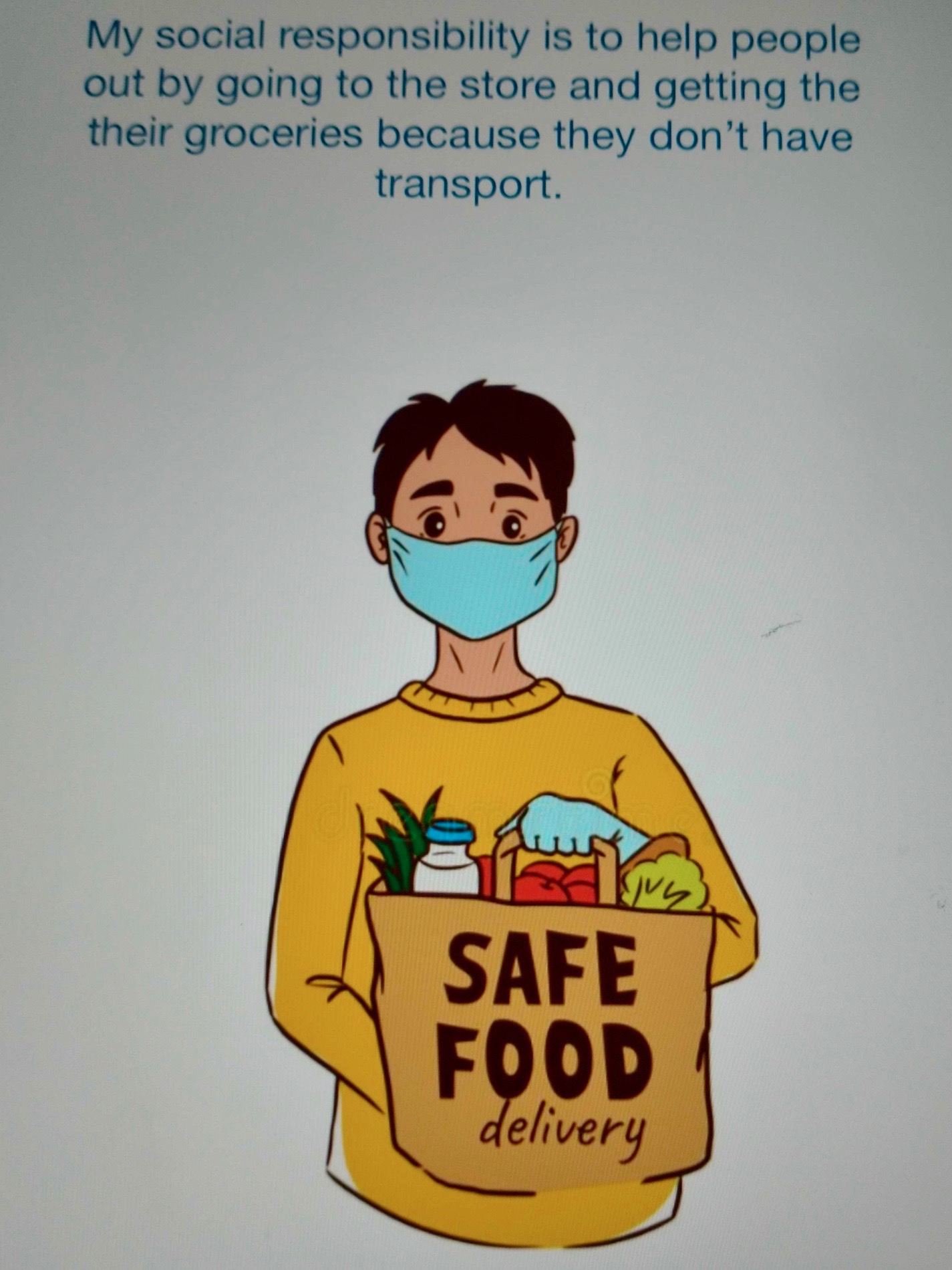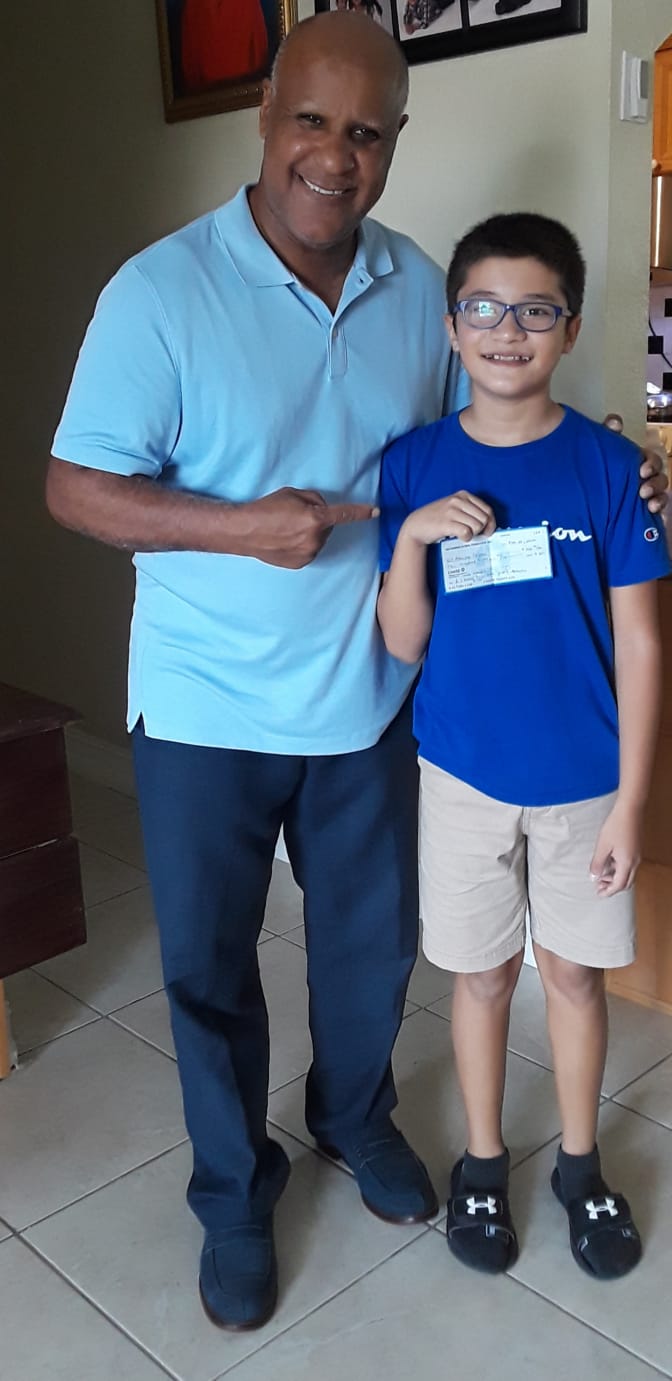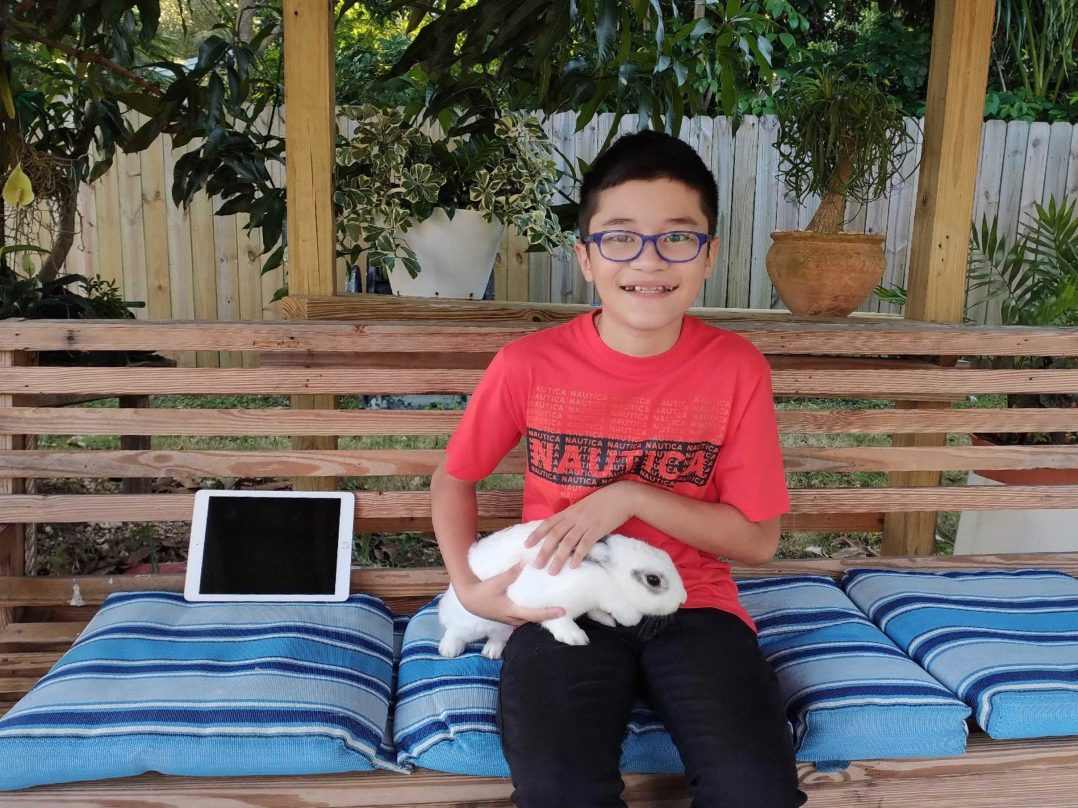“Keep Trying”: What a Young Latino Student Learned About Resilience and Innovation On His Way to Winning Two Competitions at a BizTech Camp
Carlos Alvarez, 11, was set to explain his idea for a neighborhood dog walking service and pet care in his rural South Florida community during BIZNOVATOR Virtual BizTech Camp Pitch Competitions, a virtual tech, innovation, and entrepreneurship project co-hosted by the professional training firm BIZNOVATOR and the UnidosUS Affiliate Centro Campesino. Then … trouble.
Carlos’ patchy internet connection glitched right at the moment of truth in his Zoom presentation. That might have spelled doom on a program like Shark Tank. But for the Biznovator judges, it was a chance to see just how innovative and determined the young Alvarez was.
“In just a few seconds, he was able to shift his PowerPoint from his laptop to his phone and connect the home Wifi access from that laptop,” marvels Biznovator Founder and CEO Juan Casimiro, noting that Alvarez had also convinced his family to stand by as set producers, jumping in with lamps to adjust for changes in lighting or serving as talent in a commercial explaining how his products could help the community. “That to me is the ultimate problem solving on the spot.”
Thanks to those skills and the thought Alvarez put into the unmet needs of an area with all sorts of pets and livestock, Casimiro and the other three entrepreneurial professionals on the judge’s panel gave Alvarez first place in the program’s middle-school competition. Because he was so enthusiastic and determined, they gave him special permission and a scholarship to compete in the high school competition. He won that, too, with a pitch for buying up fresh produce from local farmers and delivering it to local elders and others with an elevated COVID-19 risk.

“Before I thought I couldn’t do this and that, and then I won both of those competitions. I learned a lot in those two months,” Alvarez tells ProgressReport.co during a phone interview. He’s only in the sixth grade, but if he were to choose a college major, he says it would have something to do with technology and business, both of which require a lot of public speaking.
“I’m really good at presenting,” he declares.
The ability to communicate clearly and confidently is critical for success. And picking it up young is a big advantage, Casimiro says. That’s the idea behind these camps. Latino students face obstacles to accessing education and business breaks, but, with the right tools, they can create their own opportunities.
“We’re firm believers that if we are able to teach Latino youth and other youth these important entrepreneurship, social innovation, and leadership skills early, they can become amazing leaders that impact the world,” says Casimiro.

An Innovative Life Skills Approach
BIZNOVATOR offers low-cost or grant-funded innovation camps to students and aspiring entrepreneurs of all ages—kindergarten through adulthood—and in many corners of the globe. Historically, they have been held at schools, community centers, and college campuses, but with the pandemic, they’re hosted online. Most last several months and generally require that students join classes or work on their class-related entrepreneurial projects for several hours a day.
The company is the fruit of Casimiro’s own youth entrepreneurial experiences. He says he always felt uncomfortable asking his parents, both working class immigrants from the Dominican Republic, for money because he knew they were financially strapped. In that era, paper routes were a viable option for tweens looking to earn some money, so at age 12, he picked up one up one around his childhood home in Queens, New York. As he went knocking on doors to sell subscriptions, he decided to ask what other needs or wants those neighbors had. This being decades before UberEATS and Door Dash, they gladly paid Casimiro a little extra to buy them hot coffee and bagels or doughnuts. Pretty soon he was also shoveling the snow off their porches and driveways.
“I was offering them convenience,” he says, noting that assessing a community’s biggest stressors or difficulties is key to creating a sustainable service. And sustainable is a word Casimiro likes to use often. Today, Biznovator camps catering to students across the United States, Latin America, the Caribbean, and parts of Africa must incorporate some of the United Nations’ 17 Sustainable Development Goals or SDGs. Signed into agreement by 193 countries in 2015, that initiative is an attempt to eradicate poverty and hunger, set a much higher benchmark for gender equality, and take serious action on climate change by the year 2030.
Whether in Caracas, Port-au-Prince, Nairobi, or Homestead, Casimiro wants his students to feel moved by the problems in their community and inspired by the cultural assets they have to solve them. For example, Alvarez noted that he was bilingual in English and Spanish, making it that much easier for him to troubleshoot with neighbors in a community with lots of Latin American and Caribbean immigrants.
That assets-based mindset gives students a huge motivational boost, especially during the pandemic, says Centro Campesino Education Director Barbara Cesar. Funding for this two-month summer program has historically come from the Children’s Trust, attracting some 50 students to participate on the Centro Campesino grounds. The virtual camp hosted about two dozen students, and, in addition to daily biz-tech trainings, BIZNOVATOR provided all participants and some other Centro Campesino youth with a one-hour personal finance workshop called My Money, My Future. Given that the pandemic has forced most programming to go virtual, Cesar says she’s happy with the turnout, and thrilled to see how engaged the students were with the program and with each other.
Toward the end of the event, a screen video of the conference shows a beaming Alvarez offering some words of inspiration to all the competitors he beat.
“If you didn’t do it today, don’t give up. Keep trying,” he says, as other students shout affirmative yeah’s. “I know some people were too nervous to come out of their shells. Come out of your shell, be who you are!”
Increased Scholastic Engagement
“We’re searching for opportunities for youth that incorporate entrepreneurial skills with social and emotional learning and provide them opportunities they wouldn’t normally be able to get in their day-to-day schooling or in regular afterschool programming,” she says.
For Alvarez, this has also translated to a greater appreciation for how his schooling relates to his entrepreneurial goals.
“I feel more excited and more confident. It doesn’t just help me with creating my business. It also helps me with my homework. Say I have math homework and it’s dealing with calculating numbers and investing, BIZNOVATOR taught me all of that stuff—calculating money to invest in or grow your business, and with the money that you saved up, you can put it in the bank and save it,” he explains.
Alvarez’s own parents emigrated from El Salvador to South Florida over a decade ago. Since that time, his mother has been working in a plant nursery, and his father in carpentry.
Alvarez’s mother Araceli says her son has always been an active, creative child of many interests – animals, painting, presentations, and knowing this, she always tells him:
“Whatever you choose, I know you’re going to be able to do it.”
Casimiro credits his own parents for that example of hard work and positive reinforcement, but notes many immigrant parents are so busy surviving they don’t have the time or the skills to help their children strategize on creative endeavors.
Preparing for the Workforce
“Parents don’t know what they don’t know,” he says, explaining that many parents encourage their children to think only about already existing jobs, jobs that might be hard to obtain or cease to exist in a rapidly changing economy. “Through innovation and creativity, you can create your own job, become your own freelancer or solopreneur, whatever that may be,” he says.
Or how about an intrapreneur, a person who obtains a traditional job role and then innovates from within a company? ProgressReport.co asks.
“That’s one of the hottest movements right now,” says Casimiro. “Most of my human resources friends at multinational multi-billion-dollar corporations are saying, ‘look, we respect the college degree, but at the end of the day, what we’re looking for is innovation, so can you communicate and help solve problems for our company?’”
“We understand that not everyone will become an entrepreneur, but at the very least, they will be able to be leaders within their own realm and make entrepreneurial decisions in their everyday lives,” seconds Cesar.
Calls for Greater Tech and STEM Studies Supports
UnidosUS STEM Manager Shante Stokes says this is just the kind of culturally relevant tech programming she works with to foster within UnidosUS’s programming and its Affiliate network, primarily through a Google.org grant called CASA Code.
“There is an increasing need for quality, after-school programming for Latino students, especially now due to the looming coronavirus pandemic. As a result, the digital divide has widened and outreach has lessened,” she says.
In fact, last summer, a study conducted in partnership with Alliance for Excellent Education (All4Ed), the National Indian Education Association (NIEA), the National Urban League, and UnidosUS— showed that nearly 17 million students across the country lack the high-speed internet access they need to adequately connect to the virtual classroom. The report came with a call to action for Congress to pass the Emergency Education Connections Act, a bill aimed at closing that connectivity gap, and to include in its next coronavirus relief package some $6.8 billion for E-rate, a program of the Federal Communications Commission that provides discounts for telecommunications, internet access, and internal connections to eligible schools and libraries.
But, says Stokes, these informal STEM programs can contribute to a more innovative student population and future workforce.
“Beyond subject knowledge, students practice critical and analytical thinking and become skilled collaborators. Through this interdisciplinary approach, students form meaningful real-world connections between school, the workplace, their communities, and the global economy,” she adds.
Indeed, Cesar says she was impressed with how students in the BIZNOVATOR-Centro Campesino camp responded to calls that they get together to develop assessments of their community’s needs, identify culturally appropriate marketing and messaging strategies, create business cards and commercials, and help each other prepare for those game-time speeches in front of the judges.
“They started with their heads facing down, and by the end of the program, you saw them engaging, asking questions, and making eye contact. They developed a sense of confidence in how to look an adult in the eyes and have open conversations, says Cesar. “It was beyond successful.”
When Alvarez was asked if he had any photos that he thought would help illustrate his business plans on the ProgressReport.co, and possibly market those plans to his community in Homestead, he paused and thought for a minute, then said he could send a photo of him holding his beloved pet rabbit.
“They’re going to trust me with their pets because they know that I take care my own pet,” he concludes.


